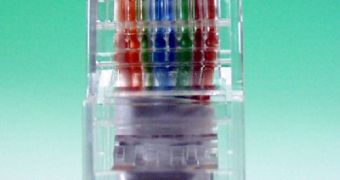I must admit this 22-year-old man from Queensland found one of the smartest ideas to remain anonymous while conducting illegal activities on the web: he used a handheld device to infiltrate into unprotected wireless networks and connected to the web using the owner's details. This way, he could launch any attack he wanted, because he couldn't be identified since the provided information led the authorities to the network's owner. Although security companies warned about the risk of using unprotected WiFi networks, it seems like some individuals and firms continue to ignore the advices and prefer to remain unprotected.
Getting back to the news, the man living in North Rockhampton conducted illegal activities since August, the Australian IT reported today. It seems like one of his favorite activities was threatening other Internet consumers and requesting them money in order to stop sending threats. However, December 3rd wasn't a lucky day for the 22-year-old man, as several undercover agents arrested him after he had attempted to get a package dropped in a park, the same source added.
The interesting fact is that he connected to any unprotected wireless network, no matter who was its owner. This is why it's extremely important to protect the networks with passwords or any other encryption solution that could block a hacker's attempt to get free Internet.
"We worry about unsecured networks because it means people have put up a wireless router without taking the time to set the security settings. We strongly recommend people enable connection encryption, because that significantly reduces the risk of unauthorized access", James McCormack, director of the Australian High Tech Crime Centre, told Australian IT.
"Look for WPA, which is WiFi Protected Access, the best form of encryption for this type of arrangement", he said. "If you don't have WPA, go for WEP; it's an older form of encryption but still quite secure. Then enter a short pass-phrase to cover all the computers on your network", he added.

 14 DAY TRIAL //
14 DAY TRIAL //